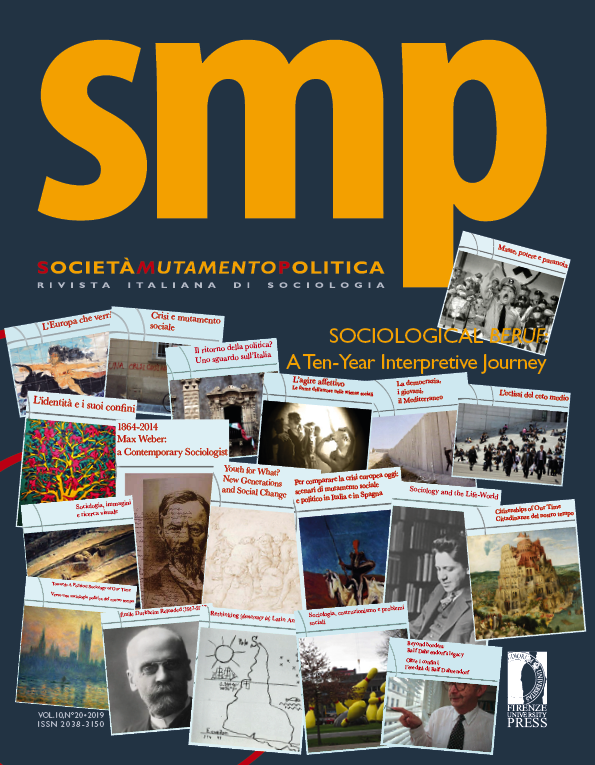Published 2020-01-16
Keywords
- Alienation,
- Shame,
- Intersubjectivity,
- Jaeggi,
- Mead
How to Cite
Abstract
This paper advances the hypothesis of a theoretical affinity between alienation and shame. This attempt will be circumscribed by a narrow intention based on the work of the philosopher Rahel Jaeggi (2014). Specifically, the paper will try to outline a sociological translation of Jaeggi’s thought, attempting at the same time to identify interpretive affinities between a Meadian social-theoretical reading of shame and a sociological translation of the German philosopher’s theory of alienation, which is widely debated in the context of social philosophy. Shame and alienation can be associated in reference to their common twofold root: they are, at one and the same time, social events, objectified and exteriorized, and individual events, linked to subjective experience. Moreover, they both show further ambivalences. They are necessary to the stabilization of social bonds, but at the same time they can indicate the emergence of social pathologies. As we will see, a Meadian reading of shame can thus help to compensate for Jaeggi’s lack of discussion of the social aspects of alienation and, at the same time, emphasize the alienation side of shame.


